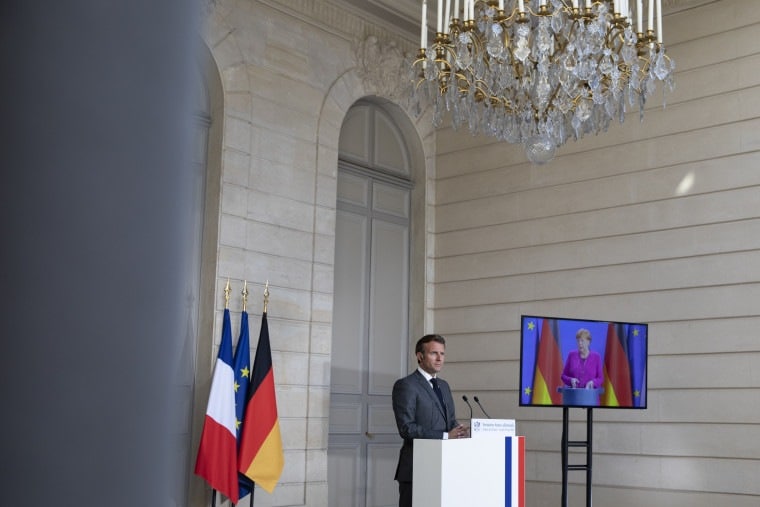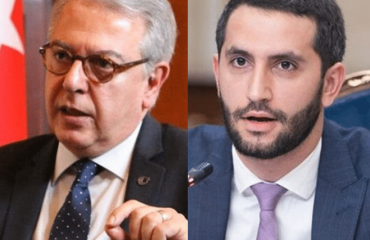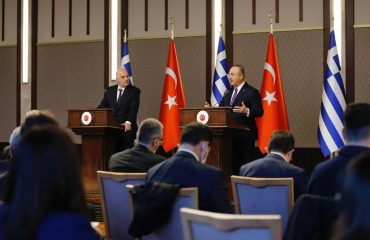

After 35 hours of heated debate, “The law for strengthening Republican values” was adopted by the National Assembly, the lower chamber of the French parliament, last week. Although there is no mention of either Islam or Muslim anywhere in the text, it is no secret that the real purpose of the law is to combat religious fundamentalism. More than 300 proposed amendments were adopted during the deliberations of the law which Macron refers to as a tool for fighting Islamic separatism.
The draft law was approved on Feb. 16 by 341 votes to 151, while 65 MPs abstained. Macron’s ruling party and centrist political parties supporting the government voted in favor. Right-wing Republicans, the main opposition party, as well as the leftist La France Insoumise (Unsubmissive France) voted against. Republicans believed the law fell short of naming Islam as the enemy, while La France Insoumise claimed that the law was targeting Muslims. Marine le Pen’s National Front, the socialists and the communists did not take part in the vote.
In order to come into force, the draft law has to be approved by the Senate, which is expected to consider it at the end of March. Since Macron has a comfortable majority in the Senate no surprise is expected. But if the law is taken to the Constitutional Council, as was the case in the past for the law penalizing denial of the so-called Armenian genocide, it is not easy to predict the outcome.
What does the law bring?
Practices like polygamy, forced marriages and virginity tests are totally banned, while education of small children at home is restricted. Religious associations are asked to sign a contract committing them to respect the republican principles if they wish to benefit from public funds. They will also be subjected to strict financial scrutiny. Politics at mosques is forbidden. Heavy penalties are envisaged for those violating these provisions.
In fact, Macron signaled his intention of bringing in new legislation on Islamic separatism in his first speech after assuming the presidency. When Samuel Paty, the history teacher was slaughtered by a Chechen jihadist on Oct. 16, 2020, Macron said that Islam was in crisis all over the world and that Islam in France should be cleared from outside influences. It seems that he then pressed the button. Macron’s statement created fury in the Muslim world, President Recep Tayyip Erdoğan included. Meanwhile, it is worth remembering that the Turkish Foreign Ministry issued a press statement regarding the terrorist attack on an Italian diplomat in Africa on Feb. 22 but remained silent as the entire world condemned Samuel Paty’s murder.
Examples of Germany and Austria
The attempt to create a European Islam is not a new phenomenon. The groundwork for this idea was laid in Germany, where it is projected that by 2030 one of seven people living there will be a Muslim. The debate on Islam has a long history. Otto Schilly, a former Interior Minister, said back in 2002 that Muslims in Germany should be prepared to accept a European Islam. A new dimension was added to this debate in 2010 when President Wulff commented that Islam was part of Germany. In recent years, the need to redesign Islam in line with European values is frequently voiced at the Islamic Council which was set up as a forum for dialogue with the Muslims living in the country. Austria was the first country to take concrete steps towards enacting legislation to fight Islamic fundamentalism. Under the guise of modernizing the law on Islam originally put in force in 1912 for the Bosnian Muslims living on the territory of the empire, Austria passed a new law on Islam in 2015. It would not be wrong to presume that this new law, which clearly discriminates against Muslims, was encouraged by big brother Germany.
Is Turkey the target?
It is clear that in Germany and Austria, whose Muslim populations consist predominantly of Turks, the purpose is to reduce the influence of Turkey, which is considered to be the main obstacle to the greater integration of Muslim communities. For quite some time, the host countries have not been comfortable with the activities of the Austrian Islamic Union in Austria and the similar Islamic Union in Germany, both of which are closely supported by Turkey’s Diyanet, the Directorate of Religious Affairs. The new law on Islam in Austria prohibits Diyanet from sending imams to Austria whose salaries are paid by Turkey. The situation is somehow different in France. Only 700.000 out of some eight million Muslims there are Turks. Macron clearly intends to attract the right-wing votes at the forthcoming elections scheduled for mid-2022.
Is European Islam the right solution?
These developments in European countries with Muslim populations are taking place with security considerations and political motives rather than the aim of modernizing Islam on the basis of European values. Sebastian Kurz’s anti- Turkish and Islamophobic rhetoric and practices paved the way for his rise from foreign minister to the chancellor at the age of 32. Certainly, DAESH (ISIL) terror in Europe, ill practices such as spreading political propaganda at mosques as well the transplantation of Turkish groupings like the ‘national view’, ‘Süleymancı’ and ‘grey wolves’ movements to Europe have carried grist to the mill of ultra-nationalist parties in Europe. Efforts to create a new model of Islam without cooperating with open-minded, contemporary religious personalities and intuitions in Islamic countries have little chance of success. History is full of cases of restriction and suppression of religion backfiring after a while.


